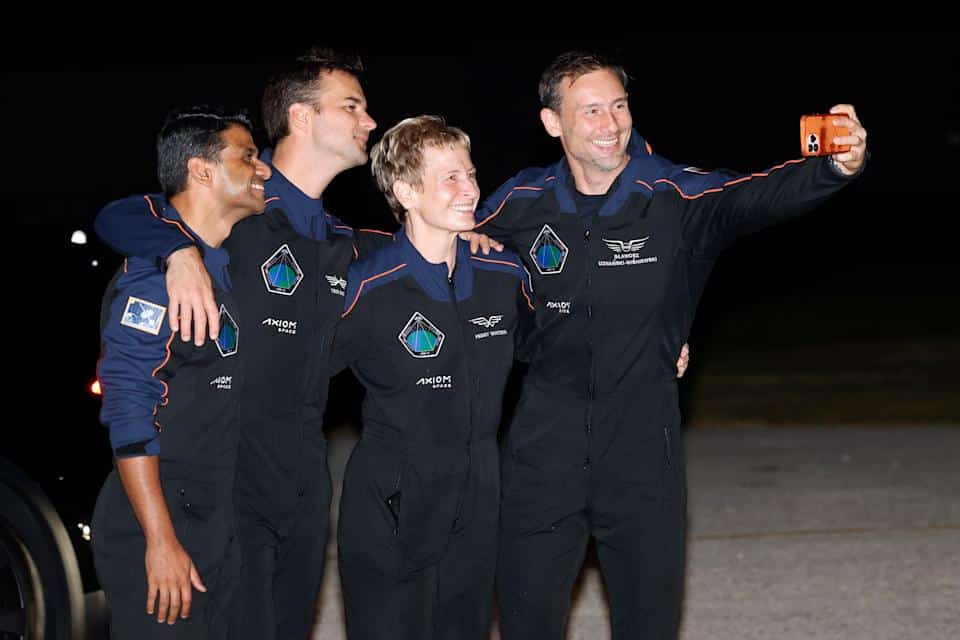Indian Astronaut Poised to Make Historic Journey as First National to Walk on the International Space Station

Astronaut Shubhanshu Shukla is poised to make history as the first Indian to step onto the International Space Station (ISS). He embarked on the Axiom-4 mission on Wednesday, piloting a crew that includes former NASA veteran Peggy Whitson and astronauts Slawosz Uznanski-Wisniewski from Poland and Tibor Kapu from Hungary. The crew is expected to spend two weeks aboard the ISS, conducting a series of scientific experiments that could pave the way for India’s future in human spaceflight.
Historic Launch and Mission Overview
The Axiom-4 mission, a commercial flight operated by Axiom Space, launched from NASA’s Kennedy Space Center in Florida at 02:31 EDT (06:31 GMT; 12:01 India time) on Wednesday. The crew’s docking with the ISS is scheduled for Thursday at 07:00 EDT (11:00 GMT; 16:30 India time). This mission marks a significant collaboration between NASA, India’s space agency ISRO, the European Space Agency (ESA), and SpaceX. Notably, the two European astronauts are also returning to space after a hiatus of over 40 years. During their two-week stay, the crew will engage in 60 scientific experiments, including seven designed by ISRO, which aims to enhance India’s capabilities in human space exploration.
Significance of the Mission for India
Group Captain Shukla is only the second Indian to travel to space, following Rakesh Sharma’s historic flight aboard a Russian Soyuz in 1984. ISRO has invested 5 billion rupees (approximately $59 million) to secure Shukla’s seat on the Axiom-4 mission and to cover his training expenses. The experience gained during this mission is expected to be invaluable for India’s future human spaceflight endeavors. ISRO has ambitious plans, including launching its first human spaceflight by 2027 and establishing a space station by 2035, with aspirations to send an astronaut to the Moon by 2040.
A Day in Space: Shukla’s Experience
In a live uplink with Axiom Space, Group Captain Shukla shared his initial experiences in space. He described the sensation of floating as “an amazing feeling” and expressed excitement about the journey. Although he initially felt unwell during the launch, he noted that he had been sleeping well, which he considered a positive sign. Shukla remarked on the challenges of adapting to zero gravity, likening it to learning to walk and eat again. He also introduced Joy, a small white toy swan that serves as the mission’s “zero-G indicator,” symbolizing wisdom and focus in an age filled with distractions.
The Spirit of the Mission
Commander Peggy Whitson, leading the Axiom-4 mission, revealed that their spacecraft is named “Grace.” She explained that the name embodies the elegance of their journey through space and reflects the harmony of science and spirit. Whitson emphasized that spaceflight transcends engineering achievements, representing an act of goodwill for the benefit of humanity. The mission not only highlights technological advancements but also underscores the collaborative spirit of international space exploration.
Observer Voice is the one stop site for National, International news, Sports, Editor’s Choice, Art/culture contents, Quotes and much more. We also cover historical contents. Historical contents includes World History, Indian History, and what happened today. The website also covers Entertainment across the India and World.
Follow Us on Twitter, Instagram, Facebook, & LinkedIn

